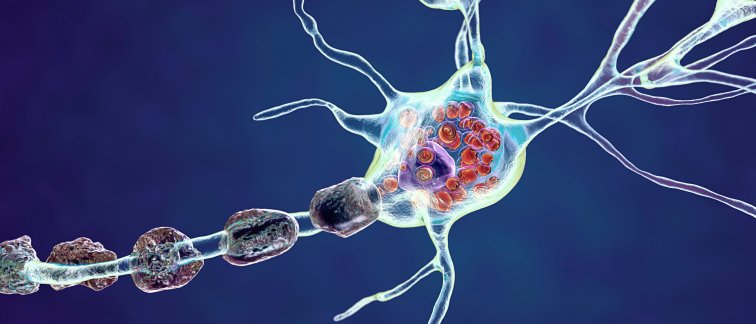Research shows that fats, or lipids, play a major role in various brain diseases. Future drugs that target fat metabolism (metabolism of fats in the brain) have a great chance of stopping or even curing brain diseases such as Alzheimer's. With this research project, the scientists aim to contribute to a better understanding of brain diseases and accelerate the development of drugs that target disturbed fat metabolism.
Cholesterol accumulation in Alzheimer's mutations
The grant is a follow-up to a starting grant they received 18 months ago from the Chan Zuckerberg Initiative (CZI). Van der Kant: “During the start-up phase, the research groups of Martin Giera and me developed a new way to map fat metabolism in human brain cells. We showed that certain fats, mainly cholesterol, accumulate in brain cells with certain Alzheimer's mutations.” Based on these and earlier discoveries, the scientists will launch a clinical trial in the spring of 2023 with potentially new brain cholesterol-lowering drugs.

Follow-up studies in other brain diseases
In the project's start-up phase, the focus was on Alzheimer's disease. In this second phase of research, van der Kant and Giera will test whether the fat metabolism is also disturbed in at least six other brain diseases. “Collaboration is an important criteria for this grant, and thus we are very excited to further expand our project with other international experts in the field such as Priyanka Narayan (National Institutes of Health) and other researchers within the Neurodegeneration Challenge Network,” says Van der Kant.
Neurodegeneration Challenge Network
The NDCN brings together experimental scientists from diverse research fields, along with computational biologists and physicians, to understand the fundamental biology of neurodegenerative disorders. This project is one of 16 to be awarded funding in cycle two.

